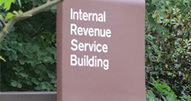It’s the 4th quarter. The holidays are right around the corner. The last thing you may want to think about is income taxes … but there are some compelling reasons why you should be thinking ahead.
Last year’s tax season saw the biggest change to the tax code in over 30 years. At the end of the tax season, we noted that one of the lessons learned was that individuals who engage us in tax planning early, on average, fared much better than those who did not. There are some very important reasons for this:













